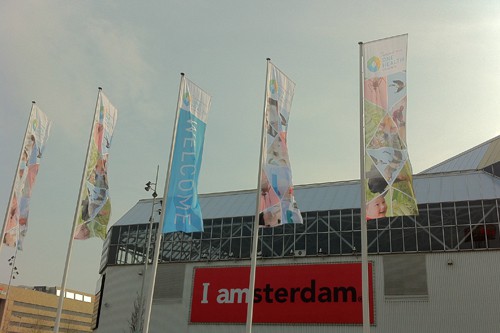
There should be closer collaboration between animal health companies and the pharma sector to combat the threat of infectious diseases, according to leading animal health executives, academics and researchers.
Speaking at the third One Health Congress in Amsterdam on Monday representatives from the likes of Zoetis, GlaxoSmithKline, Oxford University’s Jenner Institute and industry trade bodies argued in favour of a more holistic approach to health research.
Ebola, which is believed to originate in fruit bats, is one disease that could benefit from this approach, but such ‘zoonotic’ pathogens – those that can be transmitted from animals to humans – also encompass influenza, tuberculosis and West Nile virus.
Zoetis’ executive VP and area president for Europe, Africa and Middle East Alejandro Bernal was one of those addressing a satellite symposium at the One Health Congress.
“Detecting and controlling disease in animals should not only occur after human cases, which is too often the case, it should start when outbreaks of zoonotic diseases are fist seen in animals,” he said.
“Therefore an integrated human-animal approach, rather than the classical, separate approach is needed. The current collaboration and business model is not optimal.”
All told more than 60% of the infectious diseases that affect humans originate in wild animals and 75% of emerging diseases are zoonotic.
“The total cost to society of a disease increases exponentially once humans are impacted by it,” Bernal told the One Health symposium.
And beyond infectious diseases there could also be applications for a One Health approach within oncology, diabetes, pain and anti-microbial resistance.
Safeguarding health
Speaking to PMLiVE before the meeting he explained the One Health approach and the interest of Zoetis, which operated as Pfizer Animal Health until 2013, in the concept.
“One Health is a concept whereby all institutions that are working on safeguarding health, both for animals and for humans, come together to collaborate and work together to address those common goals, though a better collaboration in the use of the tools that each industry has to offer.
“In Zoetis we have a singular focus on animal health, but at the same time we know that collaborating with institutions that focus on human health can improve the way in which, for example, pathogens that can affect both humans and animals can be controlled much more effectively.”
Bernal, who is also chairman of animal health trade body IFAH-Europe, was joined by at the symposium by Magda Chlebus, director of science policy at IFAH’s pharma counterpart EFPIA.
She said: “Our two sectors can achieve a lot by joining forces … and the integration of the life sciences should happen because of the great opportunities that we have today.”
“There is no other choice in our two sectors but to work together,” she said, adding that the Innovative Medicines Initiative (IMI) and its “community of brains” could assist in such research.
The public-private partnership between EFPIA and the European Union was set up to address some of the key societal and healthcare challenges. Its Ebola+ programme has eight projects, four involving Janssen, and ongoing work also covers antimicrobial resistance.
“Human, animal and environmental health face many common or related challenges. Success in addressing these will, more than ever, rely on our ability to integrate know-how, sciences and technologies from many sectors and companies,” Chlebus said.




